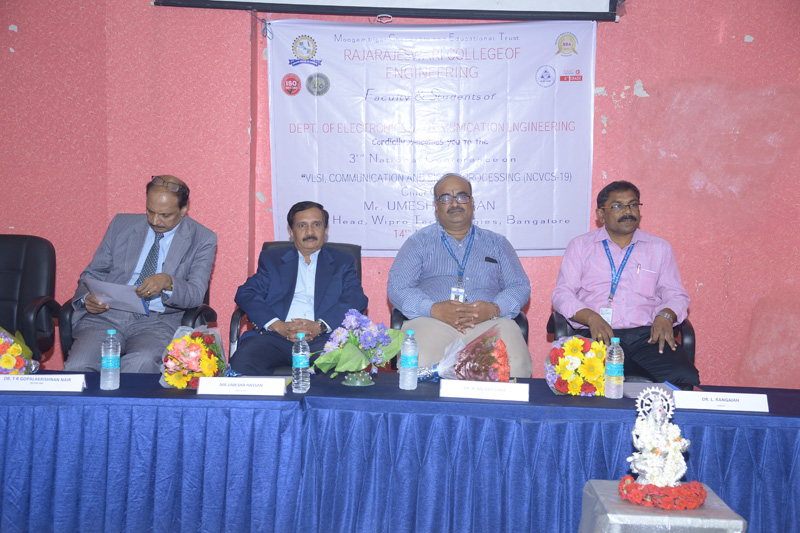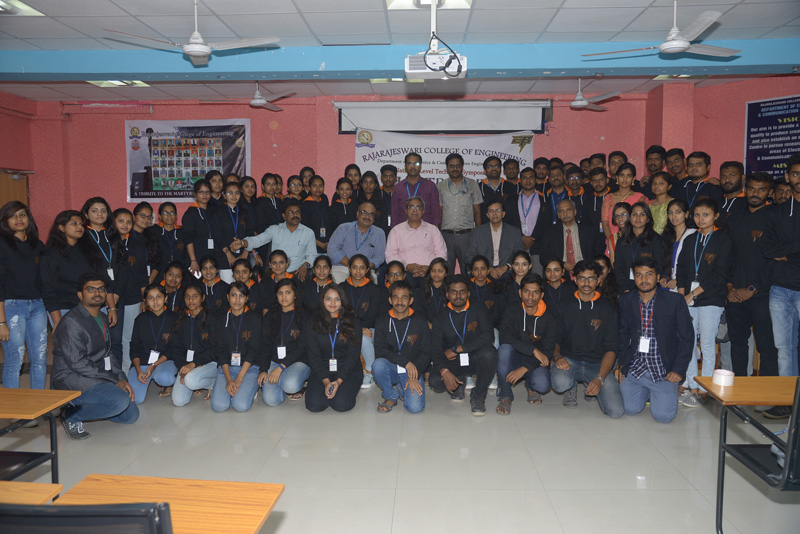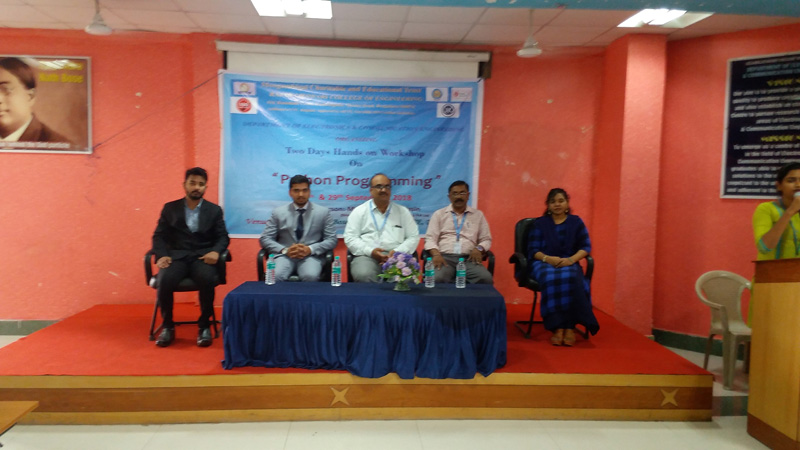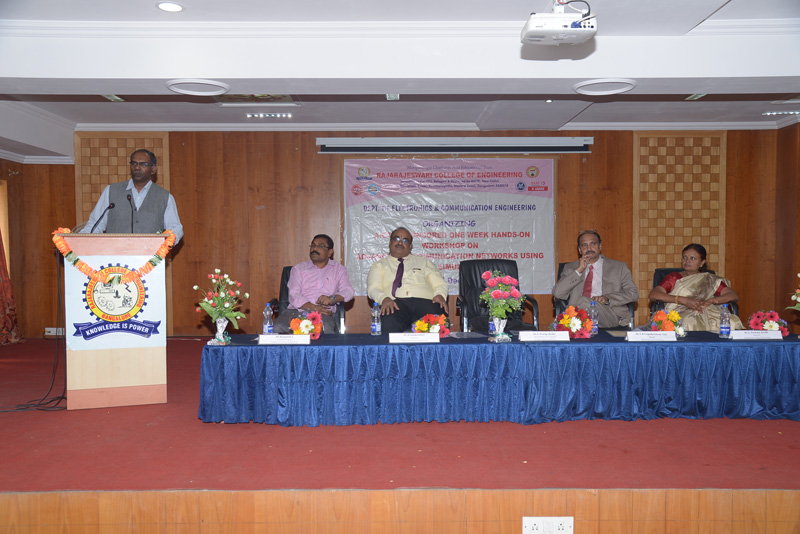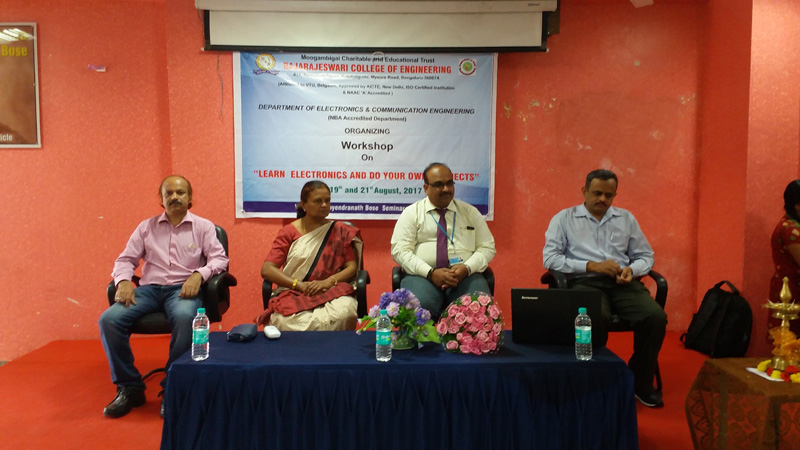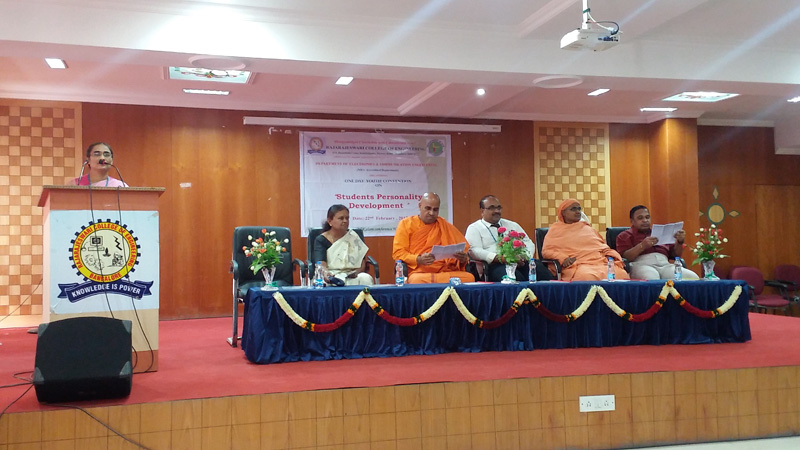Overview
Department of Electronics & Communication Engineering have started in the year 2006-07 with a sanctioned intake of 60 students. The programme is approved by AICTE, New Delhi and affiliated to Visvesvaraya Technological University, Karnataka.In the academic year 2013-14 sanctioned intake is increased to 120 from 60 students and also started M. Tech Programs in “Digital Electronics & Communication Engineering” and “Communication Systems” in the year 2011 and 2014 with intake of 18 Department of Electronics and Communication Engineering has a research center approved by VTU, Belagavi in the year 2016. The Department offers UG, PG and Ph.D. Programs under VTU. The program is accredited by NBA for the 2015 and 2019.There are a total of 23 faculty members. Many of them having more than 10 years of experience. There are faculty members with good amount of industry experience. The department is geared up to conduct National and International conferences in association with Springer, IETE and ISTE. The Number of workshops, Industrial visits FDPs, Seminars and Conferences conducted in the campus are increasing every year. We are also collaborating with industries such as Karnataka Hybrid Micro Devices, P-Thinks & Win global Tech, Apsis Solutions Pvt Ltd, Bangalore. Faculty and Student projects are proposed for VGST, KSCST and VTU funding. Our students have excelled sports such as Karate, Cricket and Kabaddi and participated in state level and University level. All the activities are held through professional societies like ISTE, IETE and Department club.
ABOUT ECE R&D CENTRE
ECE Research Centre approved by VTU, Belagavi in the year 2016.There are Five members approved as supervisors in the department. Totally Ten members registered in our research centre and three are completed the viva voce examination and one is submitted.About 08 of our faculty are pursuing Ph.D in our research center and other research centers.Totally 07 faculty members are completed their Ph.D during 2018 to 2022. Our faculty members are published 145 papers in reputed international journals and conferences and also published 16 patents. Our faculty got the funding for the project proposals from AICTE, VTU TEQIP, KSCST, VTU and CSIR. ECE Department has Centre of Excellence in Wireless Sensor Networks and Product Design Students are encouraged to do innovative and product-based projects related to advance technologies and encouraged to publish papers in the International & National conference and journals. We have adopted integrated teaching-learning practices. Workshops, symposiums &Technical Seminars are organized on regular basis. Our students have received best paper awards in the conferences. Students are counseled according to the industry & academics requirement, encouraged to have hands on exposure.
Students are encouraged to do innovative and product based projects related to advance technologies and encouraged to publish papers in the International & National conference and journals. We have adopted integrated teaching-learning practices. Workshops, symposiums & Technical Seminars are organized on regular basis. Our students have received best paper awards in the conferences. Students are counseled according to the industry & academics requirement, encouraged to have hands on exposure. Students are given guidance for higher studies and soft skill training for placements I good companies.
Sanctioned intake of the department 120
UG program– B.E degree in Electronics and Communication
PG programmes-Sanctioned intake of 18
1. Digital Electronics and communications
2. M.Tech in communication systems
Course Name
Electronics and Communication Engineering
Duration
4 years (UG), 2 years (PG)
Eligibility
Marks - General
45% Aggregate
Marks - SC / ST / OBC
40% Aggregate
Eligibility - Subjects
- Physics & Mathematics along with Chemistry/ Bio technology/ Biology(UG)
- B.E. in Electronics and Communication Engineering (PG)
Eligibility - Exam
- A rank is must in Entrance Examinations like CET, KRLM, COMED –K, AIET, AIEEE Etc.
- A rank is must in Entrance Examinations like PGCET or GATE. GATE qualified candidates are eligible for scholarship through AICTE. Few seats are also available for sponsored quota and Management quota
Application Form
Application Not Available! Please contact the office!
A+ Accreditation, Approvals, and Recognition
- Approved by AICTE
- Affiliated to VTU
- Approved Research Center
Career Opportunities
This program is aimed to providing in depth knowledge to students with a wide variety of opportunities, both in the Industry as well as in the R & D fields. The curriculum is designed to make the students excel in areas of, Modern DSP, Antenna Theory and Design, Error control, Optical communication Networks, Microwave and Antenna designs.
Vision & Mission
Vision
Actualize high Quality Electronics and Communication Engineering professionals showcasing Innovation, Research and Performance in the Frontier areas and capable of working local, global, environment contributing for Societal development through sustainable technology keeping high moral values.
Mission
M1: To give strong fundamental and contemporary knowledge to Students with excellent curriculum and faculty.
M2: Promoting Innovation and Research by creating ambiance by collaborating Industry & academia also involving them to do societal beneficial projects.
M3: Imparting ethics to students through relevant practices.
Project Details
VTU sponsored Student Projects
KSCST sponsored Student Projects
Sponsored Workshops
Activities
Our Strength
Infrastructure
- CENTRE OF EXCELLENCE – WIRELESS SENSOR NETWORKS
- ANALOG AND DIGITAL ELECTRONICS LAB
- COMMUNICATION LAB & ADVANCED COMMUNICATION LAB
- ANALOG ELECTRONIC CIRCUITS LAB & LINEAR INTEGRATED CIRCUIT LAB
- ELECTRONIC DEVICES & INSTRUMENTATION LAB
- LOGIC DESIGN LAB & DIGITAL DESIGN LAB
- EMBEDDED SYSTEM & CONTROLLER LAB
- DSP, MICROCONTROLLER LAB & MICROPROCESSOR LAB
- ANALOG COMMUNICATION LAB & DIGITAL COMMUNICATION LAB
- VLSI LAB
- COMPUTER NETWORKS LAB & HDL LAB
- POWER ELECTRONICS LAB
Student Details
- 2024-25 Student List
- 2023-24 Student List
- 2022-23 Student List
- 2021-22 Student List
- 2020-21 Student List
- 2019-20 Student List
- 2018-19 Student List
- 2017-18 Student List
- 2016-17 Student List
Calendar of Events
- 2025-26(V,VII Odd Semester)
- 2024-25(Even Semester)
- 2024-25 (ODD Semester)
- 2023-24 (Even Semester)
- 2023-24 (Odd Semester)
- 2022-23 (Even Semester)
- 2022-23 (Odd Semester)
- 2021-22 (Odd Semester)
- 2021-22 (Even Semester)
- 2020-21 (Odd Semester)
- 2020-21 (Even Semester)
- 2019-20 (Odd Semester)
- 2019-20 (Even Semester)
- 2018-19 (Even Semester)
Department Academics Committee (DAC)
Program Assessment Committee (PAC)
Board of Studies (BOS)
Objectives
Programme Educational Objectives (PEOs)
- PEO1: Able to take up career in the Electronics & Communication industries to contribute by innovative design and products to help society.
- PEO2:Capable to work in team with good communication skills, leadership qualities and ethics.
- PEO3: Professional empowering by taking up higher education or updating Knowledge in line with the changing trends of technology.
Program Specific Outcomes (PSOs)
- PSO1: Demonstrate the competency to analyze the real time problems related to Electronics and Communication industry and able to design and develop products with the cutting edge technology.
- PSO2: Demonstrate leadership qualities to resolve the complex multidisciplinary engineering, societal challenges in the ethical manner.
Programme Outcomes (POs)
- PO1: Engineering Knowledge: Apply knowledge of mathematics, natural science, computing, engineering fundamentals and an engineering specialization as specified in WK1 to WK4 respectively to develop to the solution of complex engineering problems.
- PO2: Problem Analysis: Identify, formulate, review research literature and analyze complex engineering problems reaching substantiated conclusions with consideration for sustainable development. (WK1 to WK4)
- PO3: Design/Development of Solutions: Design creative solutions for complex engineering problems and design/develop systems/components/processes to meet identified needs with consideration for the public health and safety, whole-life cost, net zero carbon, culture, society and environment as required. (WK5)
- PO4: Conduct Investigations of Complex Problems: Conduct investigations of complex engineering problems using research-based knowledge including design of experiments, modeling, analysis & interpretation of data to provide valid conclusions. (WK8).
- PO5: Engineering Tool Usage : Create, select and apply appropriate techniques, resources and modern engineering & IT tools, including prediction and modeling recognizing their limitations to solve complex engineering problems. (WK2 and WK6)
- PO6: The Engineer and The World: Analyze and evaluate societal and environmental aspects while solving complex engineering problems for its impact on sustainability with reference to economy, health, safety, legal framework, culture and environment. (WK1, WK5, WK7).
- PO7: Ethics : Apply ethical principles and commit to professional ethics, human values, diversity and inclusion; adhere to national & international laws. (WK9)
- PO8: Individual and Collaborative Team work: Function effectively as an individual, and as a member or leader in diverse/multi-disciplinary teams.
- PO9: Communication: Communicate effectively and inclusively within the community and society at large, such as being able to comprehend and write effective reports and design documentation, make effective presentations considering cultural, language, and learning differences
- P1O: Project Management and Finance: Apply knowledge and understanding of engineering management principles and economic decision-making and apply these to one’s own work, as a member and leader in a team, and to manage projects and in multidisciplinary environments.
- P11: Life-Long Learning : Recognize the need for, and have the preparation and ability for i) independent and life-long learning ii) adaptability to new and emerging technologies and iii) critical thinking in the broadest context of technological change. (WK8)
- Analog Electronics Fundamentals
- Analog Fundamentals
- Digital System Design
- Micro Waves and Radar
- Power Electronics
- Digital Communication
- VLSI Design
- Signals and Systems
- DSP Software
- Data Communication Systems
- Optical & Wireless Communication
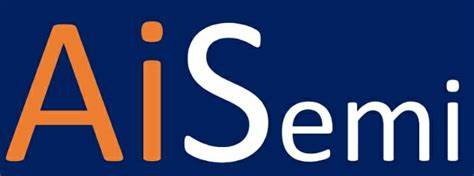
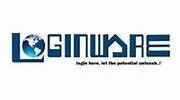


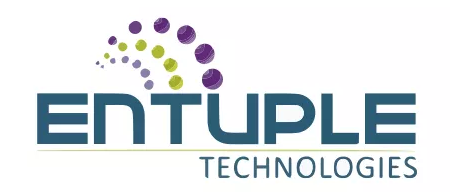
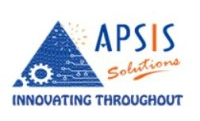

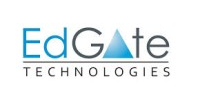

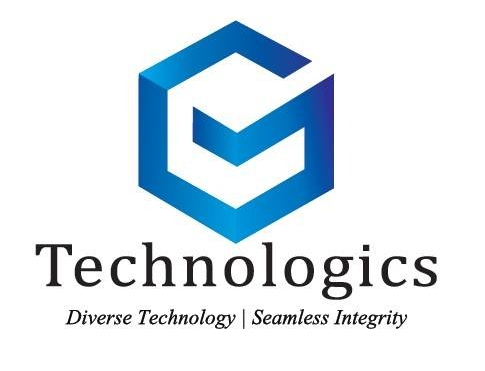
News & Events
- 12
- Dec
- 2025
SCR Activity – “Ruchi Sambhrama”
The Department of Electronics & Communication Engineering will be conducting the SCR Activity titled “Ruchi Sambhrama” on 12th December 2025, from 10:30 AM to 12:30 PM at the ECE Department.
- 5
- Dec
- 2025
“Innovex 2025” – College Level Project Exhibition
The Department of Electronics & Communication Engineering, in collaboration with AI&ML, CSE, CSE–IC, CSD, EEE, ISE, Robotics & Automation, and MCA,
- 17
- Nov
- 2025
5-Days Hands on Training Program on “PCB Design and Fabrication for Industrial Applications”
The Department of Electronics and Communication Engineering is organizing a 5-Days Hands-on Training Program on “PCB Design and Fabrication for Industrial Applications” from 17th to 21st November 2025 at Seminar Hall, 4th Floor,RRCE
- 15
- Nov
- 2025
Alumni Talk on “Component Engineering: Insights and Future Scope”
The Department of ECE successfully conducted an insightful Alumni Talk focused on component engineering, covering industry workflows, component selection, supply chain considerations, and future trends in the field.
- 13
- Nov
- 2025
Technical Seminar on “Data Analytics and Gen AI”
Technical Seminar on “Data Analytics and Gen AI”, organized by the Department of Electronics and Communication Engineering (ECE) on 13th November 2025.
Syllabus
- 22 Scheme Syllabus
- 21 Scheme Syllabus
- 18 Scheme Syllabus
- 17 Scheme Syllabus
- 15 Scheme Syllabus
- View Syllabus
KSCST – Funded Projects
| Year | IJ | IC | NC | TOTAL |
|---|---|---|---|---|
| 2024-2025 | 10 | 30 | - | 40 till date |
| 2023-2024 | 15 | 6 | - | 21 |
| 2022-2023 | 47 | 08 | 28 | 83 |
| 2021-2022 | 22 | 38 | 16 | 76 |
| 2020-2021 | 21 | 03 | - | 24 |
| 2019-2020 | 29 | 02 | - | 31 |
| 2018-2019 | 29 | - | 13 | 42 |
| 2017-2018 | 14 | 01 | 04 | 19 |
| 2016-2017 | 28 | 01 | - | 29 |
| 2015-2016 | 11 | 01 | 08 | 20 |
Student Publications
Journal Publications
Conference Publications
Placement Details
| Year | Total No. of Students | No. Students Placed |
|---|---|---|
| 2024-2025 | 86 | 11 |
| 2023-2024 | 50 | 35 |
| 2022-2023 | 78 | 65 |
| 2021-2022 | 106 | 76 |
| 2020-2021 | 116 | 79 |
| 2019-2020 | 89 | 52 |
| 2018-2019 | 80 | 50 |
| 2017-2018 | 82 | 51 |
| 2016-2017 | 83 | 39 |
- Placement Index AY 2023 to AY 2025
- Placement details-2023,2024 & 2025
- Recent Placement Details
- Year-Wise Placement Details
Internship Details
MoUs
- View MoUs List











